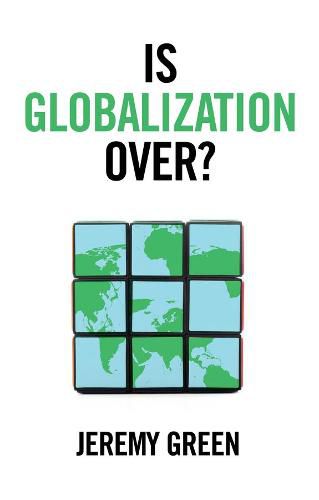Readings Newsletter
Become a Readings Member to make your shopping experience even easier.
Sign in or sign up for free!
You’re not far away from qualifying for FREE standard shipping within Australia
You’ve qualified for FREE standard shipping within Australia
The cart is loading…






Looming trade wars and rising nationalism have stirred troubling memories of the 1930s. Will history repeat itself? Do we face the chaotic breakdown of the global economic system in the face of stagnation, protectionism and political tumult?
Jeremy Green argues that, although we face grave problems, globalization is not about to end. Setting today’s challenges within a longer historical context, he demonstrates that the global economy is more interconnected than ever before and the costs of undoing it high enough to make a complete breakdown unlikely. Popular analogies between the 1930s and today are misleading. But the governing liberal ideology of globalisation is changing. It is mutating into a hard-edged nationalism that defends free markets while reasserting sovereignty and strengthening borders. This ‘national liberalism’ threatens a much more dangerous disintegration, fuelled by inequality and ecological crisis, unless we radically rethink the international status quo.
This brilliantly original account of the discontents of globalization is a must-read both for concerned citizens and students of global political economy.
$9.00 standard shipping within Australia
FREE standard shipping within Australia for orders over $100.00
Express & International shipping calculated at checkout
Stock availability can be subject to change without notice. We recommend calling the shop or contacting our online team to check availability of low stock items. Please see our Shopping Online page for more details.
Looming trade wars and rising nationalism have stirred troubling memories of the 1930s. Will history repeat itself? Do we face the chaotic breakdown of the global economic system in the face of stagnation, protectionism and political tumult?
Jeremy Green argues that, although we face grave problems, globalization is not about to end. Setting today’s challenges within a longer historical context, he demonstrates that the global economy is more interconnected than ever before and the costs of undoing it high enough to make a complete breakdown unlikely. Popular analogies between the 1930s and today are misleading. But the governing liberal ideology of globalisation is changing. It is mutating into a hard-edged nationalism that defends free markets while reasserting sovereignty and strengthening borders. This ‘national liberalism’ threatens a much more dangerous disintegration, fuelled by inequality and ecological crisis, unless we radically rethink the international status quo.
This brilliantly original account of the discontents of globalization is a must-read both for concerned citizens and students of global political economy.